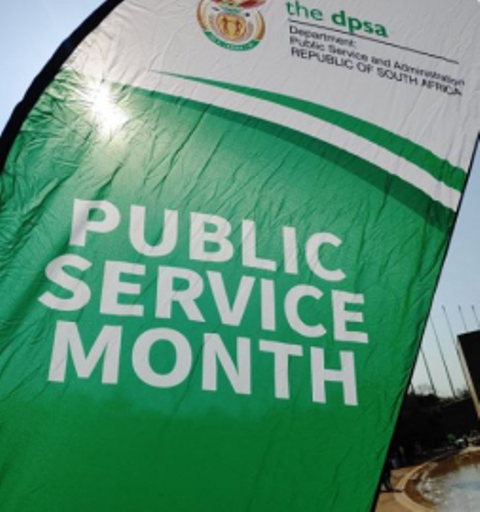In a time when public trust in government institutions is critically low, Public Service and Administration Minister Inkosi Mzamo Buthelezi is determined to reverse the tide. Speaking in an interview with Public Sector Manager magazine during Public Service Month, the Minister outlined his vision for revitalizing South Africa's Public Service, focusing on the restoration of professionalism, ethical standards, and commitment to service.
The Minister emphasized that September, traditionally marked as Public Service Month, should be a time to celebrate the dedication of public servants rather than criticize failures. "We must not create a perception that everything is rotten in the Public Service," said Buthelezi, acknowledging the challenges but insisting that many public servants remain committed to serving their country, despite more lucrative opportunities in the private sector.
Buthelezi further explained that the deterioration of public service standards is not due to a systemic failure but rather a shift in the relationship between public servants and politicians. "The Public Service was professional," he reflected. "But along the way, we, as politicians, started to politicize it." His goal, he said, is to depoliticize the public service and return it to its core values.
One of the primary initiatives the Minister highlighted is the Directive on Human Resources Management and Development for Public Service Professionalisation, released in early 2024. This directive aims to enhance the efficiency, integrity, and accountability of the Public Service, aligned with efforts to combat corruption within the system.
Buthelezi also pointed to the role of the Public Service Commission (PSC) and the National School of Government (NSG) in rebuilding trust. The PSC is central to eradicating corruption, while the NSG ensures that public servants receive training on ethics and professional development. "If people are led by unethical leaders who neglect their duty, that’s a problem," he said.
When it comes to lifestyle audits, Buthelezi is cautious about over-relying on them to combat corruption. He believes that ethical behavior should come from within, without the need for constant surveillance. "We must create a culture that repels corruption and attracts those committed to public service," he stressed.
In his first months in office, the Minister has been impressed by the innovative approaches public servants have proposed to improve government efficiency. However, he warns that innovation should be inclusive and benefit the majority of the population.
On the topic of the public sector wage bill, Buthelezi pushed back against the perception that it is "ballooning," attributing the issue to the country’s economic stagnation rather than an overabundance of public servants. "If the economy was growing at the right pace, we would not have this problem," he explained.
Buthelezi also acknowledged the long-standing issue of unresolved suspensions within the Public Service, with some employees on suspension for over a thousand days. He confirmed that the Department of Public Service and Administration (DPSA) is working to address this and finalize investigations.
Looking ahead, the Minister hopes to leave behind a legacy of public servants returning to the core principles of Batho Pele, ensuring that their commitment to serving the public is felt in every interaction. "I would like to leave behind public servants who keep going, no matter the challenges," Buthelezi concluded.











